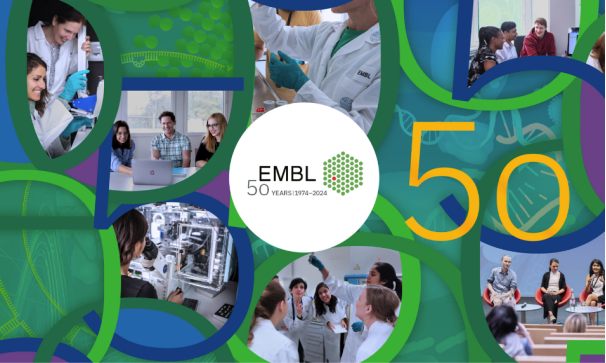Channels
Special Offers & Promotions
EMBL celebrates 50 years of cutting-edge life science research

Founded half a century ago, Europe’s pioneering life science laboratory continues to champion innovative scientific research, services, technology development, and training, with the support of its 29 member states
In 1974, 10 countries came together to establish a European research organisation for life sciences. One of its primary goals was to create an attractive working environment for European researchers and to nurture their science so that experts would not feel the need to migrate across the ocean to do their research. As it turned out, this visionary project was the beginning of a great success story for borderless biological research, not only in Europe but all over the world.
On 4 July 2024, the European Molecular Biology Laboratory (EMBL) celebrated its 50th anniversary, celebrating and reflecting on its tradition of excellence and looking forward as it takes European life sciences to new heights.
EMBL’s 50-year history contains some outstanding milestones. Among others, these include the establishment of five additional sites throughout Europe, two Nobel Prizes, the EMBL Data Library, the Human Pangenome Project, and the inauguration of a state-of-the-art Imaging Center. EMBL researchers have made significant contributions to our understanding of fundamental biological processes, especially in the areas of genomics, structural biology, embryonic development, and RNA biology, among others. They have also been instrumental in the development of tools, methods, and databases that have pushed scientific research forward not just at EMBL but worldwide, particularly in the fields of bioinformatics and biological imaging.
In the past few years, EMBL has also attracted international attention with scientific publications in the fields of cancer biology, microbiome studies, metagenomics, and infectious disease research (including on COVID-19), as well as with the development and application of artificial intelligence (AI) in biology research. The Alphafold protein structure prediction database, which EMBL-EBI released in 2022 together with the Google subsidiary DeepMind (developers of Alphafold2, an AI-based protein structure prediction tool) was one of the most important scientific achievements worldwide in recent years.
Leading a new era of life sciences
With its current 5-year research programme ‘Molecules to Ecosystems’, EMBL is committing to an additional focus on environmental research and to understanding life ‘in context’. Its flagship planetary biology project is the research expedition TREC – Traversing European Coastlines. This interdisciplinary two-year mission investigates the impact of human factors on marine and coastal ecosystems across 120 sampling sites in 21 European countries. More than 70 European partner institutions are working together under EMBL’s coordination to gain more scientific knowledge about small and large ecosystems, which will allow researchers to assess the impact of climate change and come up with potential solutions to such global issues.
Such world-class collaborative research is possible at EMBL mainly because it provides a robust framework and environment for international colleagues to apply a variety of scientific approaches and disciplines in pursuit of their curiosity about living systems. Unusual ideas and questions can be pursued here, which, in turn, leads to innovative research through interdisciplinary collaboration. This approach not only benefits basic research and enables new discoveries in biology but also helps to find potential solutions to some of the greatest challenges of our time, be it for human or planetary health.
Anniversary year 2024
EMBL is celebrating its anniversary throughout this year with various activities, such as ‘Unfold your World’, an art and science project for young people, as well as sharing stories from staff, alumni, and partners from industry, academia, and philanthropy on the #EMBL50 website and our social media channels.
The centrepiece of the anniversary celebrations, however, is the scientific symposium ‘From atoms to ecosystems - a new era in life sciences’, which will take place on 4–5 July in Heidelberg. The symposium will showcase, via presentations from current and former EMBL researchers, the organisation’s inspiring and pioneering scientific contributions and highlight how these continue to evolve to address topics of global importance.
EMBL was founded to enable science across borders. Over the course of five decades, it has brought thousands of people together, connecting them with each other and with new ideas. Discoveries have been made and new areas of research opened up at all six European EMBL sites. It has trained some of the world's leading researchers who are now pushing the boundaries of knowledge in science and industry worldwide.
We look forward to continuing to initiate and make significant contributions to the study of life over the next 50 years.
To learn more about some of the highlights from the last five decades, please read the special EMBL anniversary brochure we have published on this occasion and visit the EMBL 50th anniversary webpage.
Media Partners


